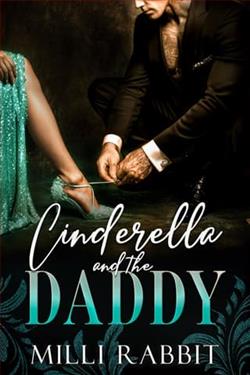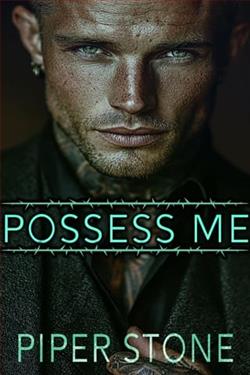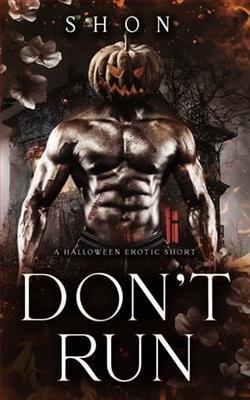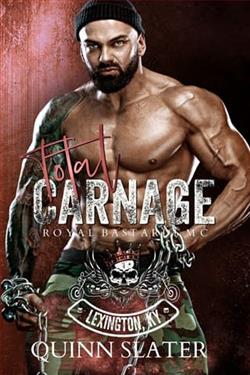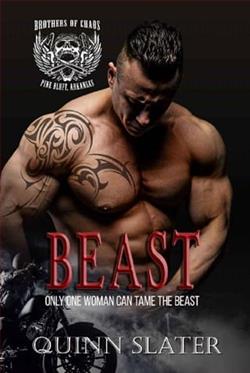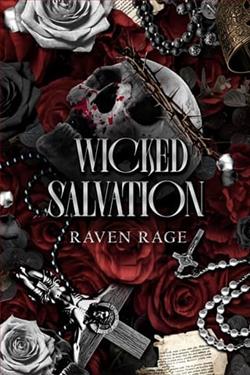Page 94 of The Wicked Lies of Habren Faire
There are murmurs of agreement, and the leader nods. “He never maintained the tunnels or the tools, didn’t listen to the inspectors.”
My ears prick at that, but what can I tell him? The mine wasn’t maintained, but there’s magic working against them too. In trying to save themselves, they’ve dug too deep into another world and damned it. Two things can be right. The land can be angry, and Lord Branshaw and his board can be lazy and cheap.
“The sign is for them, so they can play penitent.” I step closer. “The mines close. All of them, eventually. The world moves on and the things that happened down here become a ghost story.”
The leader’s body suddenly caves in, and I notice a deep, oozing gash in his head. “It was for nothing, then?”
I shake my head furiously, stretch out my hands as if I could hold them all, only for my arms to fall to my side when confronted by the enormity of thirty dead men and boys.
“You fed your families, kept your wives stocked with candles to sew by, sent your children to school for as long as you could.” I lookbetween them all, trying to commit each face to memory. “It doesn’t make this right, doesn’t undo what was done here, and it won’t bring you the peace you deserve, but you were here forthem. They won’t forget, even decades from now. They’ll remember. You loved and were loved in return. Isn’t that all we can do? None of this will last, but all of it matters.”
I think of our town a century from now, drowned by water no one will ever touch, and the lives that continue to branch from it, and I stare back at their leader unflinchingly.
“Itcan’tlast,” I say. “That’s why it matters.”
Evergreen things like crown and country mean little to us, deep beneath the ground. The Branshaws will hold on, draining the world until there’s nothing left to take, and when they write the history books, we’ll slip between the lines, but that doesn’t mean we weren’t here. Sometimes I cannot move in the morning for how pointless this all feels, until I hear my sister on the stairs, or the door close as my dad leaves for work. Until I think of my mam and my nan, and the hundreds of people who got out of bed before me, and kept getting up, kept fighting through, kept coming home after the sun was long set—who did it all over and over again, despite knowing that it meant nothing, not to the world, not in the grand scheme of things, because it meant everything to them. They did it, so I can do it, too. Imustdo it, too.
Our lives may be small, yours and mine, but we live them, impossible as that feels sometimes, and remarkably, miraculously, people love us for our efforts. Our lives are small—we’re nothing more than a speck of dust on an old coat, or a mayfly at the start of its first and only day—but from them spring a thousand stories.
“We can try again,” I tell them. “I’ll get them to bring your bodies home. We can—”
“No.” The leader looks back at his men, and they all finally train their lights on him. “I’ll not have anyone else die for this mine.”
I look at the pickaxe in his hand. It’s coated in corrupted dust. My eyes flick up and hold his, imploring him to listen. “Then you need to put that down.”
His grip tightens on the handle. “I’m not going to hurt you.”
“I know,” I say quickly. “Surely you can feel it? That things are different in this part of the mine: they’re… wrong? When you’re hacking at the walls, you’re letting something out. Something bad, like black damp. But you can stop it. You can let go.”
It sounds ridiculous as it leaves my mouth, selfish, even. I am asking them to accept their fate so that my sister and I can walk back into the light. Just like my dad, theirfriend, did every day. Just as they did for their own families. They know as well as I do that they’ll never get out, and if they set aside the pickaxe, then all they can do is sit here and wait, in the dark, for death to take them at last.
And still, I ask.
“Please.” My voice shakes.
The leader’s eyes squeeze shut; I think he’d take a deep breath if he hadn’t already used his last. I can’t see the moment he decides, but the pickaxe is in his hands, and then it hits the floor with a clatter, the rotten residue dropping from the iron.
He steps aside, staring at the tool abandoned on the damp-ridden floor. The rest of the miners follow him. There’s an almighty crash as each drops his pickaxe, and they part like a biblical sea, their lamps lighting a path to the end of the cave.
“Go,” someone says. “You girls won’t die here, too.”
Murmurs of assent follow.
“Get out of the dark,” they tell us, “and don’t come back.”
The leader looks to me one last time, his face still lost beneath the wound. “Don’t let them forget, will you, Parry?”
I shake my head, but I don’t have to promise. I’m my father’s daughter, and that means I’ll try until the end.
I grasp Ceridwen’s hand and hold her tight as we hurry down theaisle. She averts her eyes, but I don’t. I take in each face, and when we reach the end, I turn back, but their lights are out, and the miners are gone.
Ceridwen gasps and squeezes my fingers.
The gap widens in front of us into a door, and daylight greets us with open arms.
29
cyfarfod cariadon








